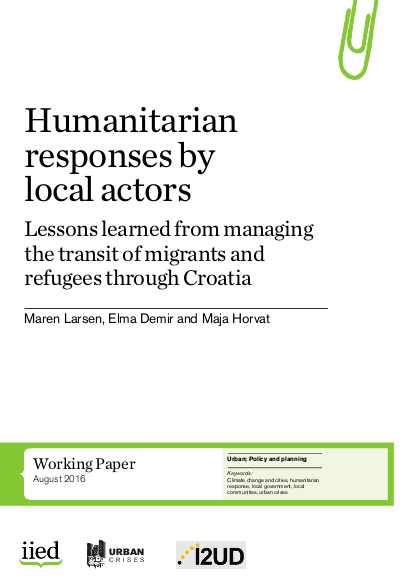
The Croatian Government managed the transit of 650,000 migrants and refugees in late 2015 and early 2016 by coordinating the activities of an extensive number of international, national and local stakeholders to ensure quick and appropriate responses to these people’s needs.
The levels to which small local governments and communities were affected by the crisis and able to respond effectively were influenced by several factors. These included the rapid mobility of people in need of humanitarian assistance, the competency of local organisations that responded and the central government’s decisions about how to coordinate assistance. The response relied on local resources and communities in a major way but it spared local governments from bearing significant direct costs.
Resource collections
- UN Habitat - Urban Response Collection
- Urban Response - Urban Crisis Preparedness and Risk Reduction
- Urban Response Collection - Community Engagement and Social Cohesion
- Urban Response Collection - Economic Recovery
- Urban Response Collection - Environment and Climate Change
- Urban Response Collection - Housing, Land and Property
- Urban Response Collection - Urban Crisis Response, Recovery and Reconstruction
- Urban Response Collection - Urban Resilience